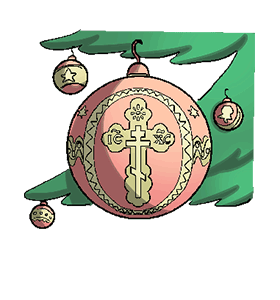Orthodox Christmas
Orthodox Christmas Quick Facts in Australia
| AKA Name | Nativity of Our Lord, The Incarnation of Christ |
|---|---|
| HashtagsCompiled on | #Christmas |
| Related Hashtags | #Orthodox, #OrthodoxChristmas, #Epiphany |
| 2026 Date | 7 January 2026 |
| 2027 Date | 7 January 2027 |
2026 Holidays & Dates - Australia
| Australian & Common Holidays | ||
| Misc. & Int'l. Observances | ||
| Christian Holidays | ||
| Jewish Holidays |
› | ||
